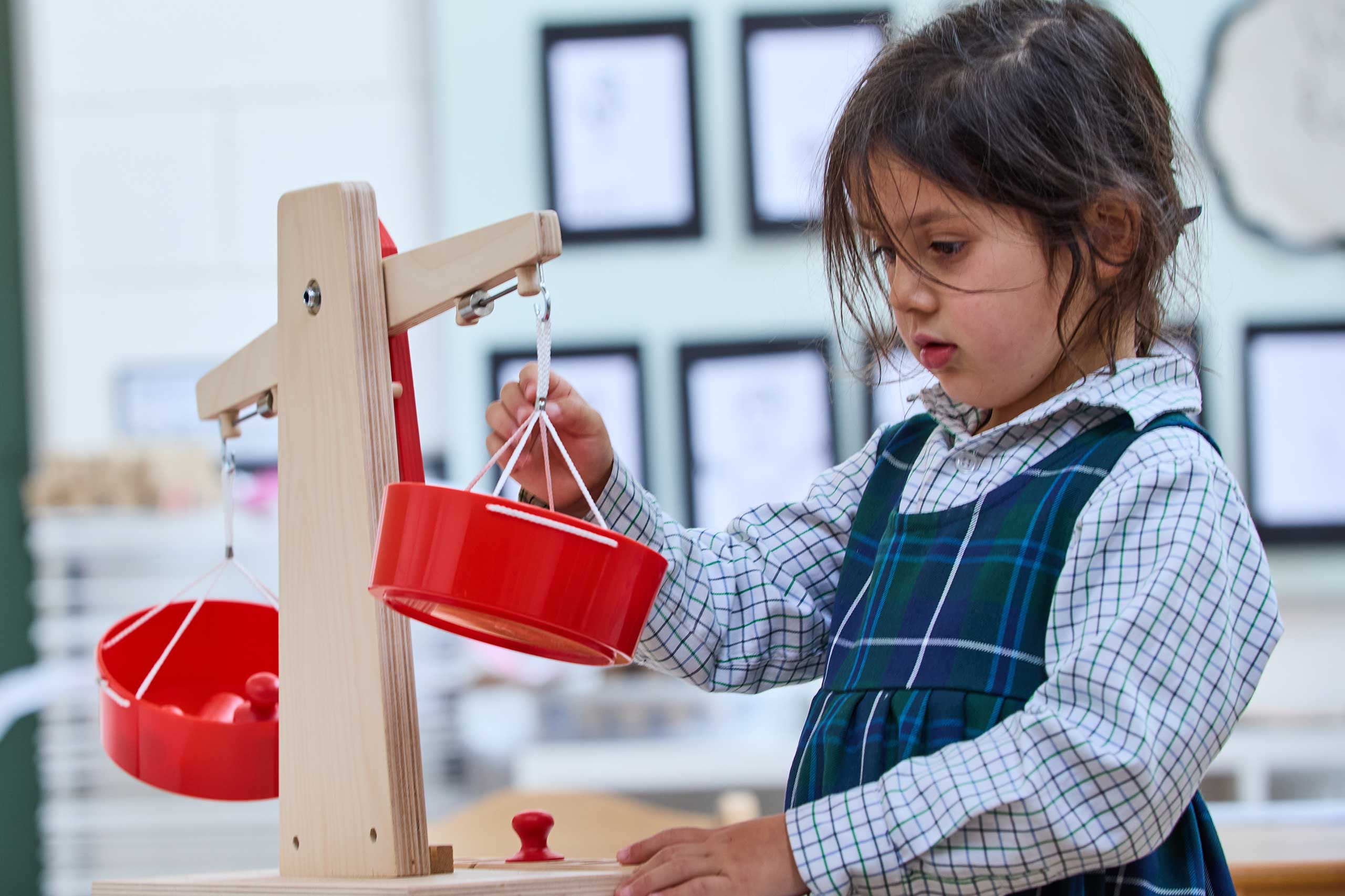
Reception Ready: A Parent’s Guide
24th June 2025
By Georgie Hunter, Head of Pre-Prep
Starting school is an unforgettable family milestone. It’s a heady mix of excitement, pride and probably a few butterflies too. For children, it’s the beginning of a new adventure, and for parents it can feel like a leap into the unknown. Whether your child is bounding through the gates or holding your hand a little tighter, that first day marks something special. Some children may be seasoned nursery-goers. For others, this might be their first real separation. Whatever your starting point, the best way to ensure a positive beginning is to prepare, not just your child but yourselves too. The good news? These preparations don’t need to be daunting. In fact, many are simple, joyful moments you can share together. Having supported many families through this exciting transition, I’d love to offer a few gentle, practical tips to help you get started.
Little steps to independence
Encouraging your child to learn simple tasks will foster independence that will be so beneficial at school. Helping them to learn how to dress themselves, go to the loo independently and put on their coats and shoes are useful skills ahead of the big day. Make these tasks a fun challenge. This might initially prove difficult, but motivate them to keep trying and your child will soon become proud of how grown up they have become.
Having a routine in place at home is highly beneficial as it helps children feel secure and understand what to expect each day. This can reduce anxiety about school. Before they start Reception, a consistent daily schedule, around bedtime, waking up, meals and play, will help make the transition into the school day that much easier.
Build their social interaction
Visiting busy child-friendly places, such as soft play centres and family attractions, helps children become accustomed to bustling child-orientated environments. And a day out with grandparents or other family members can be a wonderful way to help your child get used to being away from you.
Play dates help children learn how to interact in a group setting. Communication is key, so encourage your child to talk about their play dates. If they have struggled with an interaction, it can help them learn to manage their emotions and better understand different feelings which will be so beneficial as they navigate friendships at school.
Familiarise them with the school environment, practically and emotionally
Talk positively about starting school. Even if you’re feeling anxious as parents, it’s important to project a positive attitude about starting Reception. Children may have their own worries and need reassurance that all will be well. Help them get familiar with the school by attending events like fairs and taster days. If there aren’t any, why not contact the school and arrange a tour?
Something fun to do over the summer holidays is to encourage your child to create a scrapbook to share with their new class teacher. Include photos and stories about important people, places and events. These will help your child have conversations with their new classmates and teachers, fostering immediate connections and a sense of belonging from their very first day.
Reading preparation
Reception teachers don’t expect children to be fluent readers, but one word they should recognise is their name. It will appear on their table, chair, coat peg, books and uniform. Start by helping them learn the first letter, then build from there. Label all clothing and equipment clearly. Do make sure you use the name they will be known by at school. Teaching your child to read ‘Charlie’ is unhelpful if all labels say ‘Charles’.
Phonic rhyming patterns are useful tools too. Introduce your child to these by expanding your nursery rhyme repertoire, for example Sing a Song of Sixpence or Hickety Pickety My Red Hen.
Learning to listen is such a key skill and one of the most incredible gifts you can give your child is a bedtime story. This is such a precious time and cuddling up with you and a book will help your child discover how to turn the pages, look at the illustrations and follow the story. In turn, this will increase their vocabulary, filling them with lots of wonderful words and reinforce the idea that reading is fun.
Set the foundations for learning
Courage is key to your child’s success. Let them make mistakes and help them see that mistakes are part of the learning process and build confidence and capability. Encourage both independent and group play to foster creativity and social skills.
Explore the environment around you together to spark curiosity, observing what you see. Looking at the numbers and words on road signs on a journey can be great for early mathematical conversations and developing observational skills. Support their focus through simple activities such as puzzles and colouring. Introduce basic concepts such as colours, numbers, letters and shapes through fun and engaging games to boost cognitive development.
The first morning
You’ll both be excited and apprehensive, and that’s fine. But for your child to settle you need to make the first school drop off a calm and considered process. When you arrive, reintroduce yourself and your child to the teacher, help your child put their coat and belongings in the right place, and then settle them at an activity. Give them a big hug and kiss, tell them you love them and will see them later. Wave and walk away, smiling. Remember that you have prepared them well and they will be absolutely fine.
Starting strong together
Starting Reception is a time filled with excitement, trepidation and a sense of the unknown for both children and their parents. Your child may need encouragement and support along the way, but with strong relationships with teachers and the school they will embrace the wonderful opportunities available to them. This is the next part of their journey, a time brimming with hope, excitement and joy, and they are more than ready for it.

